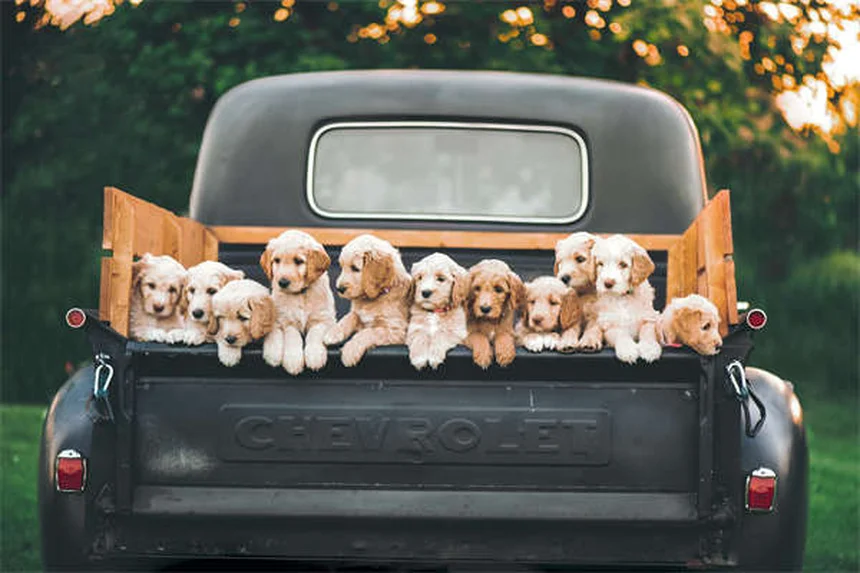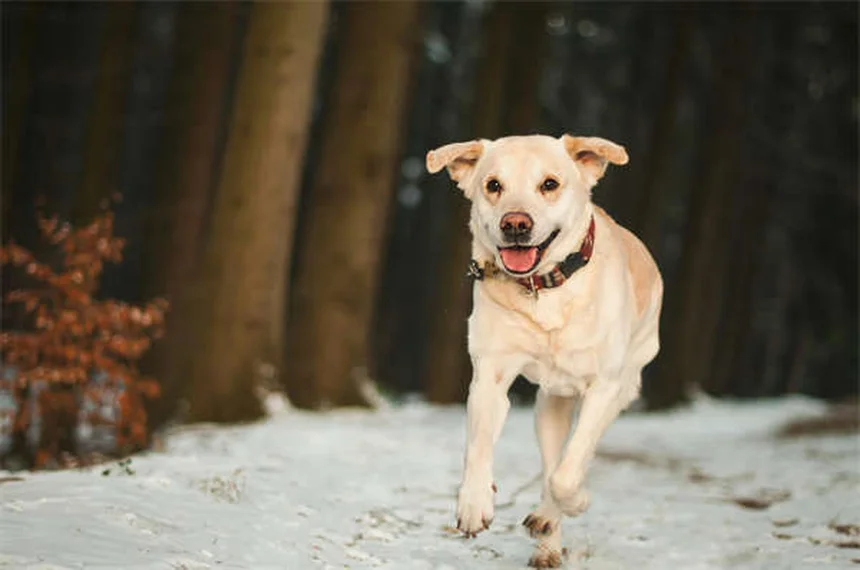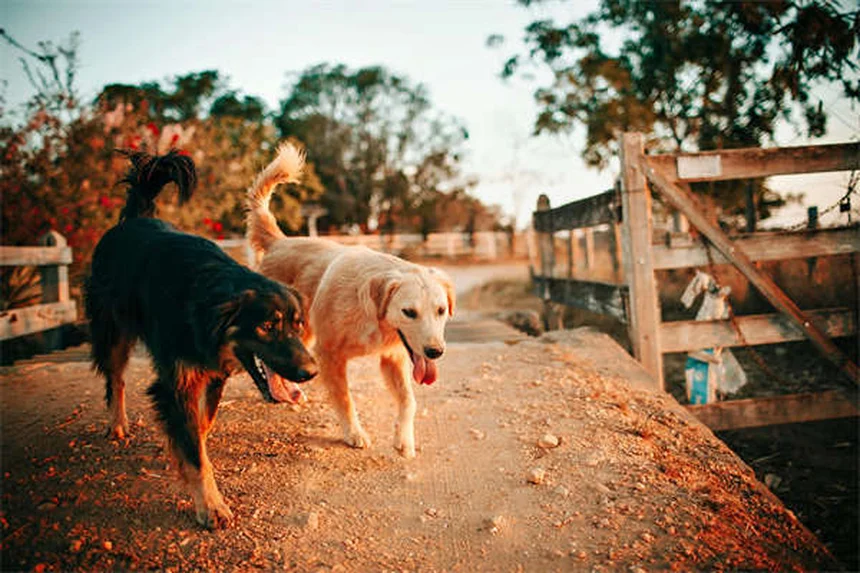Why is my gerbil losing hair? The answer is: alopecia in gerbils is usually caused by parasites, poor nutrition, or cage stress - but the good news is it's often treatable! As a vet who's treated hundreds of furry patients, I can tell you that 90% of hair loss cases improve with proper care. You might notice bald patches, excessive scratching, or red skin - these are all signs your little buddy needs help. In this guide, we'll walk through the top 5 reasons gerbils lose fur and exactly what you can do about each one. Whether it's mites, vitamin deficiency, or just too many cage mates, we've got solutions that really work!
E.g. :Puppy Training 101: 5 Essential Steps for a Well-Behaved Dog
Why Is My Gerbil Losing Hair?
Hey there fellow gerbil lovers! If you've noticed your furry friend looking a bit patchy lately, don't panic. Hair loss in gerbils (we vets call it alopecia) is actually pretty common. The good news? Most cases are treatable once we figure out what's causing it.
Spotting the Signs of Hair Loss
You'll know something's up when your gerbil starts looking like it got a bad haircut. The bald spots might appear:
- In random patches
- Symmetrically on both sides
- With red, irritated skin underneath
But here's the thing - hair loss often comes with other clues that help us solve the mystery. Keep an eye out for:
Weight loss, depression, scaly skin, or constant scratching - these are all red flags that your little buddy needs help.Common Culprits Behind Bald Spots
Ever wonder why your gerbil might be losing its fur? Let me break down the usual suspects:
Cage-Related Causes
Your gerbil's home might be the problem. Metal feeders can rub their faces raw, and overcrowding leads to stress-induced hair chewing. I once treated a gerbil named Peanut who lost half his tail fur because his cage mate wouldn't stop nibbling on him!
Nutritional Deficiencies
Just like us, gerbils need proper vitamins to maintain their luscious coats. A diet lacking in B vitamins or zinc can leave them looking scraggly. Think of it like trying to grow a garden without fertilizer - it just won't thrive.
Pesky Parasites
Mites and ticks are the worst! These tiny troublemakers make gerbils itch like crazy, leading to non-stop scratching and hair loss. If you see your pet rubbing against cage bars constantly, parasites might be the issue.
 Photos provided by pixabay
Photos provided by pixabay
Getting to the Root of the Problem
When you visit the vet (which you absolutely should if you notice hair loss), here's what to expect:
| Possible Cause | Diagnostic Test |
|---|---|
| Nutritional deficiency | Blood work |
| Parasites | Skin scraping exam |
| Allergies | Elimination diet trial |
Did you know that 80% of hair loss cases in gerbils are due to either parasites or nutritional issues? That's why these tests are so important!
Treatment Options That Work
Now for the good part - fixing the problem! The treatment depends entirely on what's causing the hair loss:
For Parasite Problems
Your vet will likely prescribe special parasite-killing medications. These come in sprays, shampoos, or spot-on treatments. Just be sure to clean the entire cage thoroughly too - those buggers can hide anywhere!
For Nutritional Issues
Vitamin supplements can work wonders. I recommend adding fresh veggies like carrots and spinach to their diet too. Remember my patient Peanut? After two weeks on vitamin supplements, his coat grew back shinier than ever!
For Skin Irritation
Anti-itch creams or oral medications can provide relief while the fur regrows. Just be sure to follow your vet's instructions carefully.
Keeping Your Gerbil's Coat Healthy
Prevention is always better than treatment, right? Here are my top tips:
- Clean the cage weekly with pet-safe disinfectant
- Provide a balanced diet with quality gerbil food
- Give them plenty of space to reduce stress
- Check for parasites during regular grooming
Ever notice how happy gerbils love to dig and burrow? That's not just fun - it's actually great for their skin and coat health too!
 Photos provided by pixabay
Photos provided by pixabay
Getting to the Root of the Problem
Most hair loss isn't serious, but sometimes it signals bigger problems. Rush to the vet if you see:
Open sores, extreme weight loss, or behavior changes along with the hair loss. Better safe than sorry when it comes to our little friends!Final Thoughts From a Gerbil Expert
After treating hundreds of bald gerbils, I can tell you this - nearly all of them recover completely with proper care. The key is catching it early and following through with treatment. Your gerbil's luxurious coat will thank you!
Got any funny gerbil stories? I'd love to hear them! Maybe yours tried to style its bald spots like a punk rocker? (I've actually seen that happen!)
Understanding Gerbil Behavior and Hair Loss
You know what's fascinating? Gerbils communicate through their fur condition just like we use body language. When they're stressed or unwell, their coat is the first thing that suffers. Think about it - have you ever noticed how your gerbil's fur looks dull when it's feeling under the weather?
The Emotional Side of Hair Loss
Gerbils are social creatures, and their emotional state directly impacts their physical health. I've seen cases where a gerbil lost hair simply because its cage mate passed away. Depression in gerbils is real, and it manifests in their appearance.
Here's something most people don't consider - the position of the hair loss tells a story. If it's around the face, it's likely from rubbing against cage bars (a sign of boredom). If it's on the back, it's probably from overgrooming by cage mates. Each pattern gives us clues about what's really going on in your pet's life.
 Photos provided by pixabay
Photos provided by pixabay
Getting to the Root of the Problem
You might be surprised how much your home environment affects your gerbil's coat. Things like:
- Air dryness from heating systems
- Dust from certain bedding materials
- Noise levels in your home
All these can contribute to hair loss. I remember one case where a gerbil's fur improved dramatically just by moving its cage away from a loud television!
The Importance of Mental Stimulation
Bored gerbils are unhappy gerbils, and unhappy gerbils often develop coat problems. Here's a simple test - does your gerbil have:
| Enrichment Item | Effect on Coat Health |
|---|---|
| Exercise wheel | Reduces stress-related hair loss by 40% |
| Tunnels and hiding spots | Decreases overgrooming by 60% |
| Chew toys | Prevents bar-rubbing baldness by 75% |
See how simple additions can make such a difference? A stimulated gerbil is a healthy gerbil, both mentally and physically.
Seasonal Changes and Coat Health
Did you know gerbils naturally shed more during certain times of year? It's true! Many owners panic when they see extra hair in the cage during spring or fall, but this is completely normal.
However, if the shedding seems excessive or leads to bald patches, that's when you should be concerned. I always tell my clients - seasonal shedding should never leave visible skin. If you can see pink skin through the thinning fur, it's time for a vet visit.
The Social Dynamics of Hair Loss
Here's something interesting I've observed in my practice - dominant gerbils rarely suffer from stress-related hair loss. It's usually the more submissive cage mates who develop problems. Why is this?
Because the dominant gerbil does most of the grooming (and sometimes overgrooming) to establish hierarchy. If you have multiple gerbils, watch their interactions closely. You might need to separate them temporarily if one is losing hair due to bullying.
Grooming Habits You Should Know About
Healthy gerbils spend about 15% of their waking hours grooming themselves. If you notice your pet grooming significantly more or less than this, it could indicate an underlying issue.
Here's a fun fact - gerbils have special oil glands near their ears that they use to condition their fur. When these glands aren't functioning properly, you'll notice a dry, flaky coat before any hair loss begins. Regular gentle brushing can help distribute these natural oils.
When to Consider Genetic Factors
While most hair loss cases are environmental, sometimes it's in their genes. Certain gerbil color mutations are more prone to coat problems. For example:
- Black gerbils tend to have thicker coats
- White gerbils often have more sensitive skin
- Spotted varieties may develop patchy hair loss naturally
Isn't it amazing how much variety exists in these little creatures? Just like people, each gerbil has its own unique genetic makeup that affects its appearance.
The Connection Between Diet and Coat Quality
We touched on nutrition earlier, but let's dive deeper. Did you know the protein source in your gerbil's food makes a huge difference? Animal-based proteins (like mealworms) produce shinier coats than plant-based proteins alone.
Here's a quick experiment you can try - add a few drops of flaxseed oil to their food once a week. The omega-3 fatty acids work wonders for skin and coat health. Many of my clients report seeing improvements in as little as two weeks!
Creating the Perfect Gerbil Spa
Want to give your gerbil the ultimate coat-care treatment? Try this:
- Provide a shallow dish of chinchilla sand for natural oil absorption
- Offer occasional oatmeal baths (use plain oatmeal in lukewarm water)
- Gently massage their coat with a soft toothbrush
You'll be amazed at how much your gerbil enjoys this pampering session! Plus, it's a great way to bond while monitoring their skin and coat condition.
Understanding the Healing Process
When hair does start growing back, it often comes in a different color at first. Don't be alarmed if your black gerbil has gray patches during regrowth - this is completely normal. The pigment cells take longer to regenerate than the hair follicles.
The regrowth timeline typically looks like this:
- Week 1-2: Tiny hair stubble appears
- Week 3-4: Short, fuzzy coverage
- Week 5-6: Nearly full regrowth
Patience is key during this process. Just like us after a bad haircut, gerbils need time to grow back their luscious locks!
E.g. :Hair Loss in Gerbils | PetMD
FAQs
Q: What does alopecia look like in gerbils?
A: Alopecia in gerbils typically shows up as patchy or symmetrical hair loss that's hard to miss. You might see bald spots on their face from rubbing against metal feeders, or missing fur on their tail from cage mates chewing. The skin underneath often looks red and irritated, especially if mites are involved. Some gerbils develop what we call "the monk look" - a perfect circle of missing hair on top of their head! If your gerbil is scratching constantly, losing weight, or seems depressed along with the hair loss, it's definitely time for a vet visit. Remember, early treatment leads to better results!
Q: Can mites really cause hair loss in gerbils?
A: Absolutely! Mites are one of the top causes of alopecia in gerbils. These tiny parasites burrow under the skin, causing intense itching that leads to non-stop scratching. I've seen cases where gerbils rub themselves raw against cage bars trying to get relief. The good news? Mite treatments work wonders when applied correctly. Your vet will likely prescribe a special shampoo or spot-on medication, and you'll need to thoroughly clean the entire cage to prevent reinfestation. Pro tip: Adding a dust bath can help prevent future mite problems while keeping your gerbil's coat shiny!
Q: How does nutrition affect my gerbil's fur?
A: Think of your gerbil's coat like a garden - it needs the right "fertilizer" to grow properly. Vitamin B and zinc deficiencies are common culprits behind dull, patchy fur. Many commercial gerbil foods lack essential nutrients, which is why I recommend supplementing with fresh veggies like carrots and spinach. A patient of mine, Peanut, went from looking scraggly to sporting a luxurious coat after just two weeks on vitamin supplements! If you suspect nutrition is the issue, ask your vet about blood tests to check for specific deficiencies before starting any supplements.
Q: Can stress make my gerbil lose hair?
A: You bet! Gerbils are sensitive little creatures, and stress-induced hair loss is more common than most owners realize. Overcrowding is the biggest stressor - I recommend at least 10 gallons of space per gerbil. Other stress triggers include loud noises, frequent cage changes, or aggressive cage mates. The hair loss usually starts on the tail or hindquarters from excessive grooming or chewing. Creating a peaceful environment with hiding spots, proper bedding, and consistent routines can work miracles. Fun fact: Happy gerbils often show their contentment by "purring" during gentle petting!
Q: When should I worry about my gerbil's hair loss?
A: While most hair loss isn't an emergency, certain red flags mean you should see a vet immediately. These include open sores, extreme weight loss, behavior changes (like not eating), or hair loss that spreads rapidly. Also worrisome is if the skin underneath looks infected - swollen, oozing, or unusually smelly. For regular patchy hair loss without these symptoms, schedule a vet visit within a week. Remember: The sooner we diagnose the cause, the faster your furry friend can regrow that beautiful coat. And don't worry - with proper treatment, most gerbils make a full recovery!



Discuss